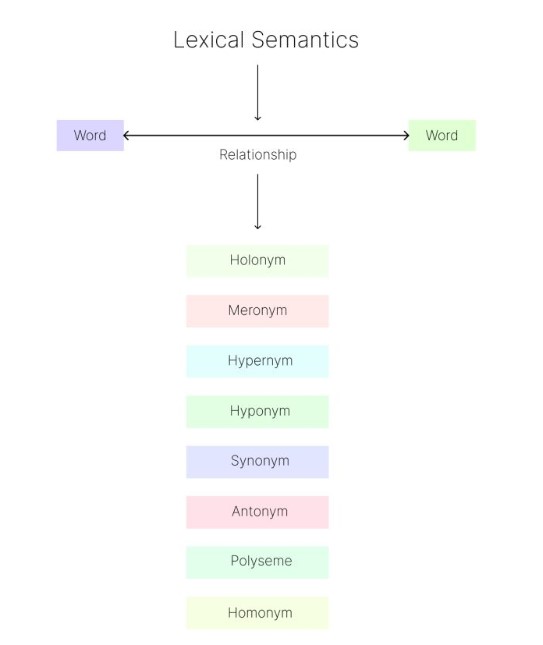Lexical Semantics Optimization
<🎯>But...🎯 Focusing only on keywords to optimize your content is flawed.

❓ Why?
- ➡️ Keywords contain words.
- ➡️ And words relate to each other.
But...
❌ Not all the relationships can be encompassed by keywords.
To truly understand the relationships of words, you need to go beyond keywords.
That’s where lexical semantics comes in. 💡
📚 What is Lexical Semantics?
In lexical semantics, you focus on how close or distant words are to each other according to their meanings.
These lexical relations between words can be of different types, including:
- 🌴 Holonym: A term that denotes a whole, the part of which is denoted by another term.
👉 Example: “Face” is a holonym of “eyes”. - 🌴 Meronym: A part of the holonym; by combining with other meronyms, it makes up the whole.
👉 Example: “Nose” is a meronym. Along with “eyes”, “lips”, etc., it makes up the “face” (holonym). - 🌴 Hypernym: A broad term that refers to a group.
👉 Example: “Color” is a hypernym of “red”, “green”, and “yellow”. - 🌴 Hyponym: A specific term under a general term.
👉 Example: “Red” is a hyponym of “color”. - 🌴 Synonym: Words with different pronunciation/spelling but similar meanings.
👉 Example: Hard, difficult, challenging, and tough are synonyms. - 🌴 Antonym: Words that are related but have opposite meanings.
👉 Example: “Sleep” and “Awake” are antonyms. - 🌴 Polyseme: Words that have two or more related meanings.
👉 Example: “Bright” can mean both “shine” and “intelligent”. - 🌴 Homonym: Words with the same spelling and pronunciation but different meanings.
👉 Example: “Bear” (noun = animal, verb = to endure).
💡 Why does this all matter?
Focusing on lexical relations between words is important at:
- 📄 Document level (micro-semantics)
- 🗺️ Website architecture/topical map level (macro-semantics)
✅ The Benefits:
- ⛳ Improved topical map coverage
- ⛳ Better context consolidation of a page
- ⛳ Reduced information retrieval score dilution
- ⛳ Higher relevance + improved click satisfaction potential
🚫 All of this CANNOT be achieved by solely relying on keywords.
